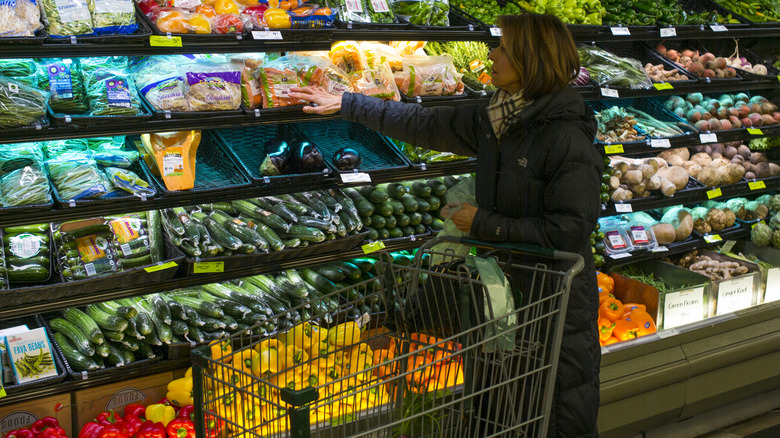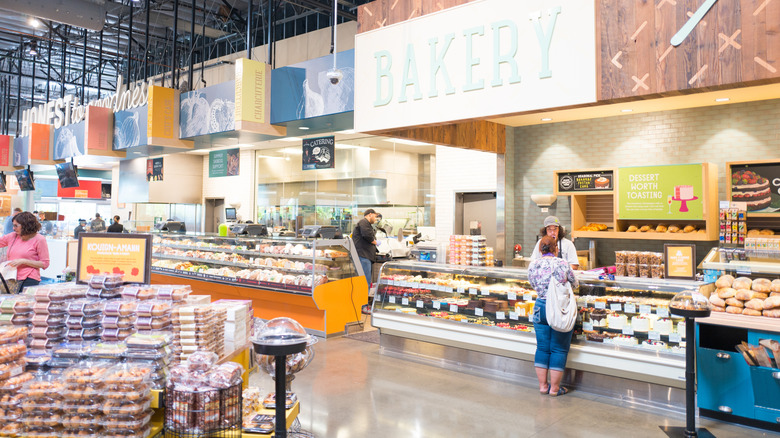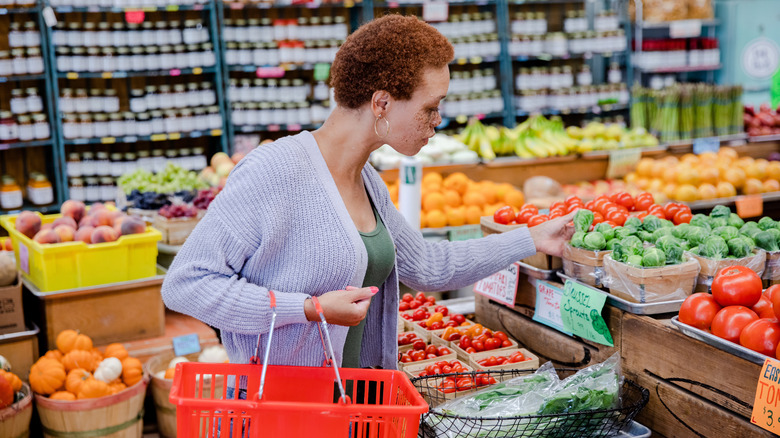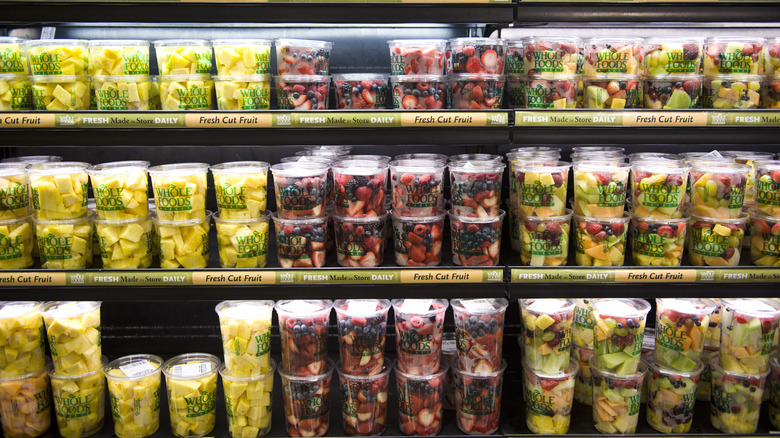Sprouts Vs Whole Foods: Which Grocery Chain Gives You A Bigger Bang For Your Buck?
When Whole Foods Market first opened its doors in 1978, the store became known for selling quality organic produce and natural foods along with high prices. Amazon acquired Whole Foods in 2017, and the landscape changed. Prices got lower, the selection of 365-labeled items increased, and Amazon Prime members started seeing discounts and deals just for them. Suddenly, it no longer took a whole paycheck to shop at Whole Foods. Some of the best things you can pick up at Whole Foods includes its store brand products (called 365), organic produce, cheese (since most of the world's cheese professionals start at Whole Foods), and bulk dried fruits, along with oatmeal, dried beans, rice, and cakes from its bakeries.
Before Amazon made its acquisition, a smaller chain offering natural foods and organic produce came on the scene. In 2002, Sprouts Farmers Market opened and had better pricing on many items — mostly conventionally grown products — than Whole Foods. Slowly, Sprouts built a reputation for offering affordable produce and natural health merchandise.
Yet, with the changes at Whole Foods, can Sprouts still be considered the store offering more for your money? It really depends on what you're shopping for.
Wellness products
When it comes to body care and supplements, there isn't much of a difference between Whole Foods and Sprouts. I compared prices on four items: epsom salt (96 ounces), eucalyptus essential oil (2 fluid ounces), organic black chia seeds (15 ounces), and organic matcha powder (5 ounces). At Whole Foods, all items were available under the 365 brand for a total of $44.96. The shopping trip wasn't as easy at Sprouts. The sizes varied and a store brand wasn't always available. The epsom salt (80 ounces), eucalyptus oil (2 ounces), Sprouts black chia seeds (12 ounces), and organic matcha powder by Sprouts (6 ounces) ran $49.96.
Bakery & dairy
Normally, I don't purchase eggs from either store because their prices are generally too high. With the bird flu affecting egg prices in 2025, both stores offer prices in line with other stores. In addition to pasture-raised eggs, I checked the prices on brioche hamburger buns (6 count), shredded mozzarella (16 ounces), half a gallon of unsweetened almond milk, and 16 ounces of unsalted butter. At Whole Foods, the total was $29.75. At Sprouts, in order to get the same amount of mozzarella, I had to buy two bags. The total came to $34.94.
Produce: Organic and conventionally-grown
Honestly, I've never purchased a lot of produce from Whole Foods. That changed during the COVID-19 pandemic. My family ordered a lot through Amazon and Whole Foods using our Prime membership. I've always preferred Sprouts' smaller produce section. It's not overwhelming, and I can usually find all that I need.
For the purpose of this comparison, I looked at one pound of bananas, one pound of organic strawberries, one large Haas avocado, one pound of organic asparagus, one organic ginger root (1 pound), and one 5 ounce bag of baby spinach. Whole Foods came in at $20.90, while Sprouts' tab was $26.04.
Winner: Whole Foods!
When it comes to selection, Whole Foods is a clear winner. Every department offers far more than what's available at Sprouts Farmer Market. If you prefer organic versus conventional-grown produce and other products, Whole Foods should be your choice. The chain offers a wide range of healthy and fresh fruits and vegetables. Sprouts, on the other hand, offers some organic products along with conventional items.
With reduced prices and deals just for Amazon Prime Members, Whole Foods is worth checking out. Both stores, however, sell a variety of organic, natural, and conventional merchandise to fit all wallets. There are sales flyers available — in-store and through your email — to make shopping at both Whole Foods and Sprouts a little more affordable.





